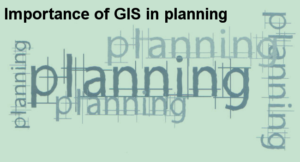It was not long ago that being self-employed as a GIS specialist would have seemed a daunting if not, an outright scary prospect for many geospatial experts. Now, this might be the most lucrative or even desirable form of employment for those in the GIS industry. In a recent Mapscaping podcast interviewing Kurt Menke, the founder of Birds Eye View, we learn about the nature of self-employed geospatial experts and what the future might hold for GIS experts who become self-employed.
The reality is the nature of work is changing and if the Covid-19 pandemic has shown us one thing it is that those who can work flexibly are better able to withstand the economic and environmental stress that we face. The GIS industry is not immune to this trend and, in fact, for many working flexibilities and remotely might be a preferred option. This also means that many jobs in GIS will be more amenable to being self-employed. The trend is clear, many companies see that they need geospatial expertise and that will expand as new technologies, such as the Internet of Things (IoT), become ubiquitous. Companies are not likely to have the talent they need in-house to utilize all that data that will develop from new technologies but they will continue to seek out those who can help them with their work problems on a short- or long-term basis. This bodes well for geospatial experts who are willing to step out and create a name for themselves. Furthermore, with the nature of open source tools, and the fact we can do nearly every geospatial task using these tools, the costs of becoming self-employed are now less. We can work from home or a space of our own choosing, while also saving money on software.
What we learn from Menke is that companies and other organizations often come looking for good talent. Clients not only come back to those who do good work, but word of mouth is often the only advertising you need, and building a solid reputation can create a lot of work opportunities. The current formula for success as someone self-employed in the GIS industry is having a niche that you can build a reputation within. You do need to have multi-tasking skills that allow you to: estimate your work budget, be able to communicate effectively with clients, an often underestimated skill, write good work proposals, learn the industry that is requesting your work, and solve your client’s problems in a timely manner, even if they do not always know what they want. You also have to be self-motivated and disciplined to be effective with your time. Another key area GIS experts need to learn to be successful at being self-employed is estimating how much time you actually will spend on a project. One problem is there are a lot of tasks, such as writing proposals, that might not be billable. However, you might be able to incorporate that time into other tasks. Being able to have such budgeting and management skills means you will not lose out; more often than not, self-employed GIS experts underestimate the costs, time, and how much they should be paid for given projects. These skills are not likely to go away in the future.
What is changing is that one can now better create their work portfolio and showcase their skills to potential clients. Whether it is online platforms, such as Upwork, that cater to the self-employed or even working with clients you connect with, it is important you build a portfolio that you can share and demonstrate what you can do. You might have to volunteer initially so you can learn about a particular industry and demonstrate to that organization your work and how GIS can solve key problems. Initially, that is fine as building your network and portfolio of GIS work is key at an early stage of one’s career. Networking and joining organizations with your colleagues also helps not only with getting future clients but it also helps you learn as you see others doing different tasks. Thankfully, such networking has become easier for us. Whether it is social media, such as Twitter, or online forums such as GIS Stack Exchange, there are now many ways for us to connect and learn from each other.
The future looks bright for GIS and that comes as no surprise perhaps too many of us in the industry. What we might not foresee, however, is how the nature of work and GIS, along with all the technical and cultural changes around us, is creating a new environment for work in the GIS industry. Professionals now being trained in GIS may have this expectation of working for an organization with set hours. That reality is becoming less true and the likelihood now is many of us are finding ourselves working for ourselves. That could be liberating or scary, but it is a reality we may have to embrace more. The key will be to master those skills that currently make self-employed GIS experts, such as Kurt Menke, successful and anticipate how the GIS industry is changing so we do not get left behind. GIS professionals will need to have the ability to multi-task and adapt as the industry continues to change.




Joe
22 Dec 2020Hi 🙂 I work full-time but really want to learn more about GIS. Do you think it’s possible to work full-time and to start a career as a GIS specialist?